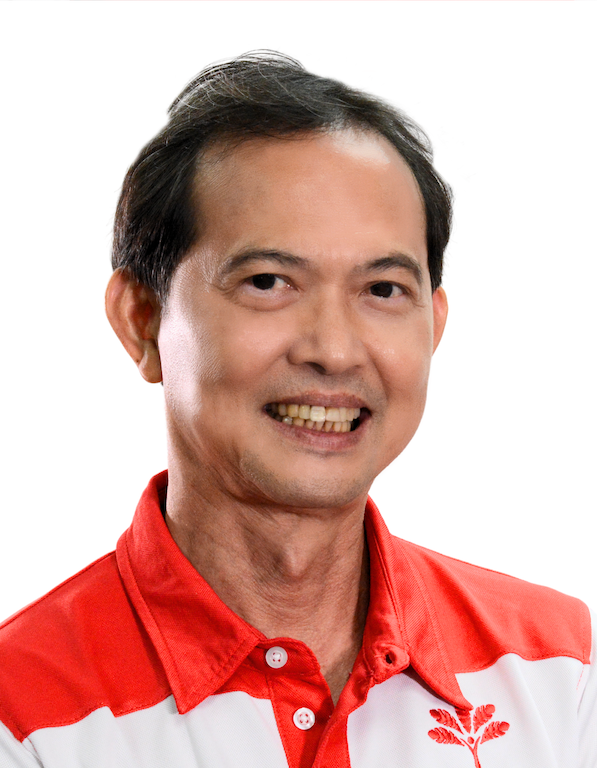Mr Speaker Sir,
I rise today to discuss how we can build Parliament into a fairer arena for all.
During the debate on the President’s Address, there was much discussion of how opposition parliamentarians behaved and performed in Parliament. DPM Lawrence Wong openly called on the opposition to offer a “serious alternative agenda”, and noted that as Singapore develops into a mature democracy, it needs both a serious government and a serious Opposition. The question is whether the current parliamentary structures and processes support the work of a serious Opposition.
Since the last General Election, the Government has taken steps to recognise the Opposition in our Parliament, with the appointment of Mr Pritam Singh, the honourable member for Aljunied GRC and Leader of the Worker’s Party, as Leader of the Opposition and the provision of some resources to assist him to discharge his duties.
While the PSP supports these moves, we think that these steps are insufficient to recognise the Opposition’s role in our political system. The Government can definitely do more to encourage a serious Opposition that is an integral part of a mature Parliamentary democracy.
Both the Government and the Opposition must play their part. Ministers have discussed at length what the Government expects a serious Opposition to do. Let us also discuss what a serious Government should do to strengthen our Parliamentary system.
I entered Parliament in August 2020. Since then, I have learnt a lot more about the processes and procedures of Parliament, and participated in many lively and substantive debates.
Based on my personal experiences, some parliamentary processes may not be the most conducive to facilitate MPs, including those from the ruling party, to do their jobs. Allow me to quote these three examples.
Firstly, MPs are supposed to scrutinize the Government and hold it to account to ensure that it is acting in the best interests of Singaporeans, be it legislation, policy or executive action. Many MPs, from both sides of the House, do not come from a public policy or legal background, and may require assistance to do such work.
However, while there is a library in the Parliament and the librarians are very helpful, there is no other research support. In place of that, elected MPs are provided with an allowance of $1,300 to hire a Legislative Assistant and $500 for a Secretarial Assistant to assist them. I’m sure most Members would agree with me that this is meagre and is completely insufficient to hire even one full-time assistant. Obviously, the Government only wants MPs to be supported by volunteers.
Furthermore, after 1997, only elected MPs are provided an allowance for the purpose of hiring a Legislative Assistant and Secretarial Assistant to support their work. The NCMPs and NMPs do not receive such an allowance.
Then Leader of the House, Mr Wong Kan Seng’s justification for the removal of the NCMPs’ support allowances were that the duties of NCMPs were not as heavy and onerous as those of elected MPs, as only elected MPs sit in committees. Today, NCMPs have full voting rights equal to elected MPs and sit on Parliamentary committees. I myself sit on the Public Petitions Committee, and the Parliamentary workload has increased across the board, commensurate with the increasing complexity of our civil service and the Parliamentary system.
Secondly, MPs could contribute more meaningfully to debates if the Government provides Ministerial Statements and other speeches to MPs, and MPs provided ministers with drafts of their speeches beforehand.
This would be a win-win situation for all, as it enables MPs and ministers to debate on the substantive issues and further the discussion, instead of having to divine whether the questions were answered by the Ministerial Statement.
The ultimate objective of the debates are to arrive at the best policy for Singaporeans, not to win a parliamentary debate.
In that spirit, I have provided this Adjournment Motion speech to Mr Speaker and the Leader of the House prior to today’s delivery. I hope that this has enabled the Government to prepare a more substantive response to the issues and suggestions that I have raised in this speech.
Lastly, MPs could benefit from more flexibility around timekeeping, especially when it comes to Question Time or the Committee of Supply debates.
Time-keeping may be important to keep our processes efficient, but I think more parliamentary time should be provided to ensure that every Member who wants to ask a question can do so. This is especially true during the COS, where many Members have been unable to ask supplementary questions because of the guillotine time and billions of dollar of expenditure are just approved like that. Having more substantive debates on policy would go a long way to enable Singaporeans to become better-informed on public policy and make the Government more accountable.
Flowing from my observations above, I have several suggestions for improvement, which fall into three major groups.
The first group is aimed at better supporting MPs in carrying out their legislative duties.
- The Parliament Secretariat should be given resources to set up a research department. This department should have a Head and several full-time staffers to provide research support for MPs as they scrutinise bills and policies. I think an appropriate annual starting budget for such a department is around S$1 million.
- The allowance to hire legislative assistants and secretarial assistants should be increased and extended to NCMPs and NMPs. it is timely for the Government to review the LA scheme for NCMPs and NMPs, as it promised to do in 1997.
- The Government to provide all data requested by Members in the requested format, unless there are national security or financial market sensitivities. The Government should not use the risk of such data being misinterpreted or being used for other purposes as justification for not releasing it. Once again, a fair arena for all.
The second group of suggestions is aimed at providing MPs with more time to question the Government and to discharge their duties as legislators.
- We should introduce an “opposition hour” during the first day of every Parliament sitting to discuss subjects chosen by the Opposition. These are likely to cover current topics which have the most public interest. This is not new, and is done in other Westminster Parliaments such as the UK and Canada. For example, in the UK, the Leader of the Opposition has 17 days where he can select the topics for debate. These debates cover a wide range of issues, from government policy to current events. This also provides a platform for the Opposition to hold the government to account, challenge its policies and decisions, and propose alternative policies or solutions to issues facing the country.
- In principle, the Q&A and clarification time for all debates, including PQs, Ministerial Statements, bills and motions, in the House should not end as long as there are new substantive questions from MPs. This would allow for debates to conclude substantively. The Speaker obviously would have the discretion to end the debate if he is of the view that further questions being asked by MPs are not covering new substantive ground.
The third group is aimed at strengthening the role of the Opposition in our Parliamentary system.
- The Public Accounts Committee (PAC) should be chaired by an opposition MP, with MPs from all political parties represented on the committee. The PAC’s role is to scrutinise Government’s financial performance and use of public funds. As such, it is important that the PAC is seen as independent and impartial. Many Westminster Parliaments ensure this by having an opposition MP chairing the PAC. This was also the case in Singapore until 1968 when there were no opposition MPs in Parliament. The first PAC chairman under a PAP government in 1959 was A.P. Rajah, who was an Independent. The second was Lim Huan Boon, who was from the Barisan Sosialis. As it has been over 40 years since opposition MPs returned to this House, I believe it is timely to again embrace our Parliamentary convention of having an Opposition MP chairing the PAC.
- The Public Petitions Committee (PPC) should also be chaired by an Opposition MP. The PPC plays an important role in providing a platform for citizens to voice their concerns and grievances to the Government. It is therefore crucial that the PPC is seen as objective and non-partisan, and having an Opposition MP as the chairperson can help to ensure this. In the United Kingdom, there is no rule that the Petitions Committee must be chaired by an opposition MP, but this is currently the case.
Conclusion
Mr Speaker,
The Leader of the Opposition has on many occasions emphasised that the small number of opposition MPs is far from the one-third necessary to check the PAP’s parliamentary supermajority. What we are asking for is a fair arena for all, and access to data and resources.
The Opposition lacks access to the resources of our excellent Civil Service. Handicapped by these lack of resources, alternative policies created by the Opposition will not have the same breadth and depth of the Government’s. The PSP echoes the views of the Leader of the Opposition.
I have made many suggestions that will enable us to better discharge our duties as Opposition MPs and NCMPs to Singaporeans. I urge the Government to seriously consider these suggestions.
The ruling party must pay more attention to discussing serious alternative policies and spend less time deflecting and avoiding uncomfortable questions. On our part, we will continue to do our best to discharge our duties as a rational and responsible Opposition party in Parliament.
This House comprises of both the Government and the Opposition. If this is to be a First Class Parliament that works amicably and constructively for the good of Singapore, it must be a fair arena for all.
Singaporeans deserve better.
For Country For People

